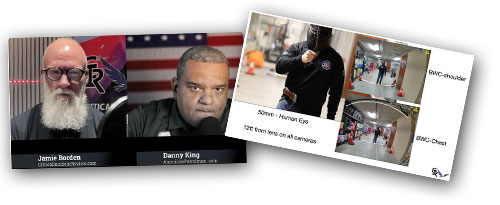The Leadership Perspective will be taught 3 times in 2026.
Nashville, TN, March 11-12, 2026
Waukee -Des Moines, Iowa, April 16-17, 2026
Ontario – Los Angeles Jun 4-5, 2026
To get updates about the class, place your email in the update box below.
Course: Force Investigations; A Leadership Perspective of Video Review and Human Factors
Course Length:2 Days
Course Content: Leadership, command, middle and line-level management will develop an understanding of the misunderstood limitations of video evidence and the inherent human factors associated with the investigations of officer-involved critical incidents. The course is designed to help leaders identify their own functionality, and potentially damaging assumptions within the critical incident.
The course offers but is not limited to the following topics:
– Building a foundation of awareness in the overall process, protocol, and defined procedures
– Understanding your role in the overall process
– Fostering awareness regarding the significance of video review and analysis, where a sworn officer is the involved
– Understanding the importance of the multiple layers of the review and analysis process to identify the “Why” an officer did what they did
– Video limitations as video relates to the officers account of the critical incident; consideration of human factors and limitations
– Closing the Loop between Incidents and Organizational Learning
– Understanding the importance of human factors that often get overlooked
This course will clarify and create a foundation to decide and defend:
– Understanding how human factors and scientific principles collide with video evidence
– Preventing a “Knee-jerk” reaction based on an emotional reaction to video evidence
– How a surface understanding of technical video evidence can change the viewer’s perspective
– Monitoring the narrative related to the release of video evidence
– Establishing & maintaining evidence-based policing, objective investigations & accurate review and analyses of complex evidence
Course Objectives are:
– To develop a clear understanding of the predominant issues faced by officers, departments, and municipalities after a critical incident, especially focused on multi-jurisdiction involvement.
– Build awareness of the human factors present in every critical incident
– Improve awareness of the over-arching department practice from the criminal investigation to the civil action, Leadership must have a global understanding of these processes to navigate them effectively
– Identify the need to develop specialized investigative capacities regarding officer-involved critical incidents, especially in the field of video review and forensic video analysis
– To grasp the importance of an officer’s “subjective” decision-making process, and how the data is “objectively” captured through investigative practice.
– Increase confidence in the foundational knowledge of video limitations and human factors to reduce long-term liability issues department-wide, including the municipality or county involved.
Get Class Updates!
Be the first to get notified each time we send out important updates and cases in use of force.

